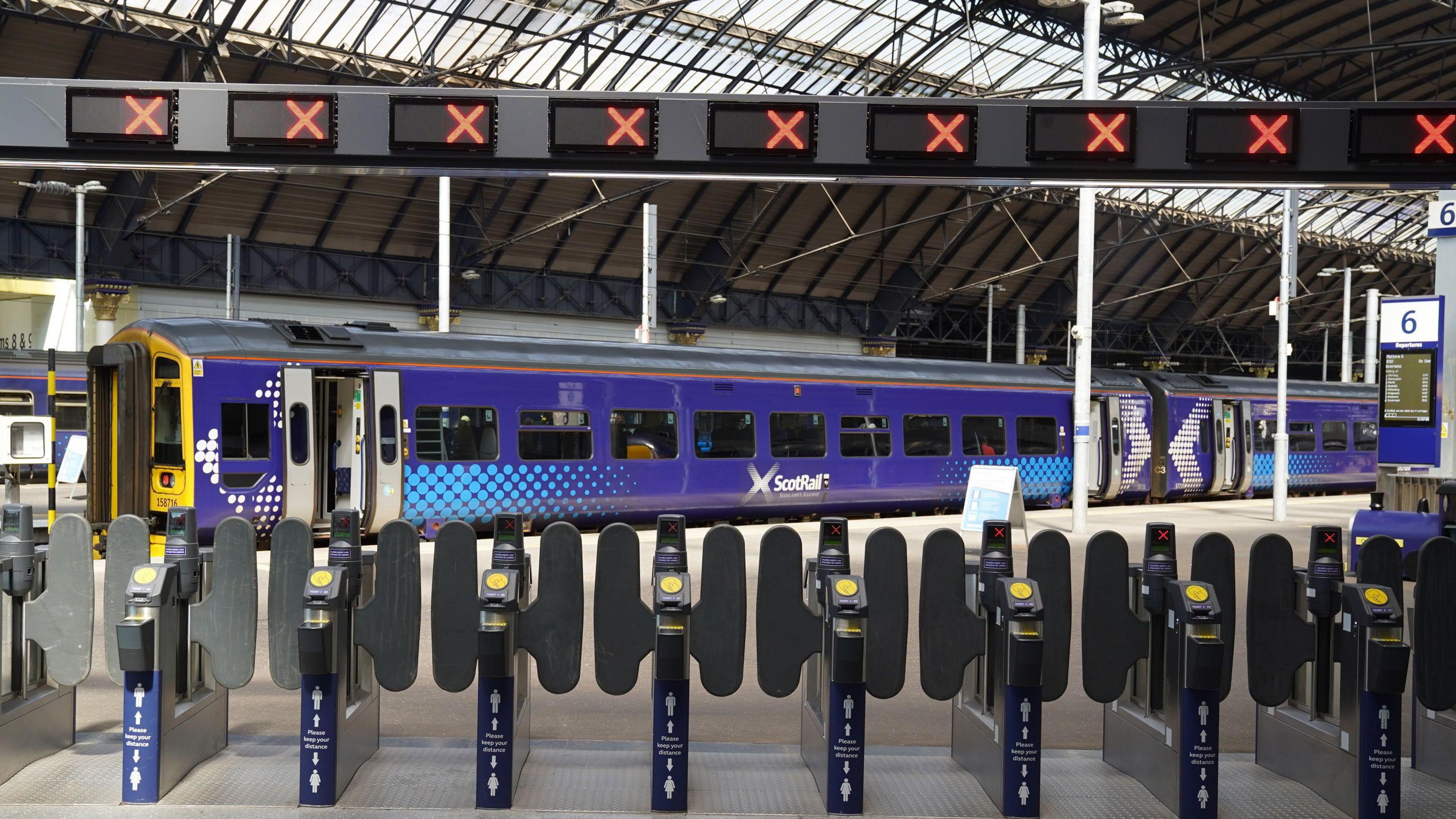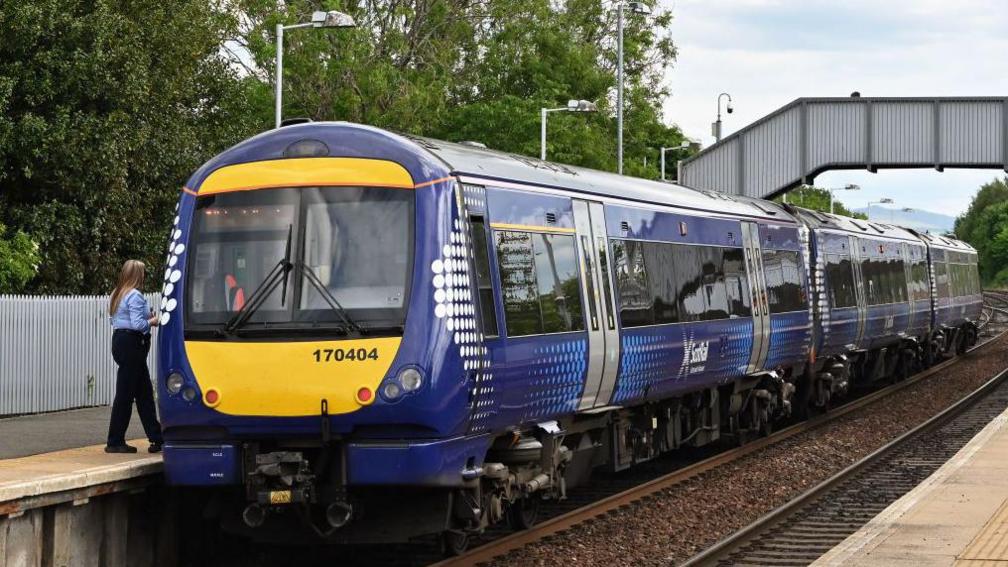Fourth rail union balloted after 'miserly' pay offer

The union warned of a 'summer of discontent' for passengers on Scotland's railways
- Published
More ScotRail workers are being balloted for strike action following a "miserly" pay offer.
The TSSA is balloting 500 members, many in managerial and technical roles.
The union has warned of a "summer of discontent" for passengers on Scotland's railways.
It is the fourth transport union to ballot ScotRail staff for industrial action, following Unite, Aslef and RMT.
Aslef, Unite, RMT and TSSA all rejected the three-year deal backdated from April this year until 2027 which would see workers receive a 2% rise each April and a 1% increase the following January.
Some staff are already working to rule, resulting in a reduced, temporary timetable.
The publicly-owned rail firm cut 600 services and introduced an emergency timetable after four unions turned down a pay offer earlier this month.
Only about 50% of services running on Sundays after drivers declined to work overtime in a row over pay.
TSSA general secretary Maryam Eslamdoust said the latest offer from ScotRail was an "insult" to its members.
“ScotRail have offered its staff 9% spread over three years, which means our members would receive a miserly 2% increase this year, well below the January RPI of 4.9%, and significantly less than the 5.5% the UK government has announced it will pay to nurses, teachers and paramedics," she said.
"If ScotRail want to avoid an embarrassing summer of discontent for passengers, then it needs to come back to the table with a better offer. Otherwise I have no doubt that our members will vote for strike action.”
The ballot ends on 29 August.
Government will 'do what we can'
TSSA is also looking for an agreement from the nationalised railway to move towards a transparent pay structure for management grades.
ScotRail said it was committed to talks to reach a fair deal for staff and value for taxpayer subsidy.
Speaking on BBC Radio's Good Morning Scotland programme, Scotland's Public Finance Minister Ivan McKee said the Scottish government would "do what we can" given the funding constraints revealed in Westminster on Monday.
"Public sector workers in Scotland are already paid quite a bit higher that they are on average across the rest of the UK," he said.
"We want to maintain that," he said, adding: "But the Labour government has made this difficult for us.
"We are working very hard to understand how we can support, absolutely, where we can."
Related topics
- Published29 July 2024
